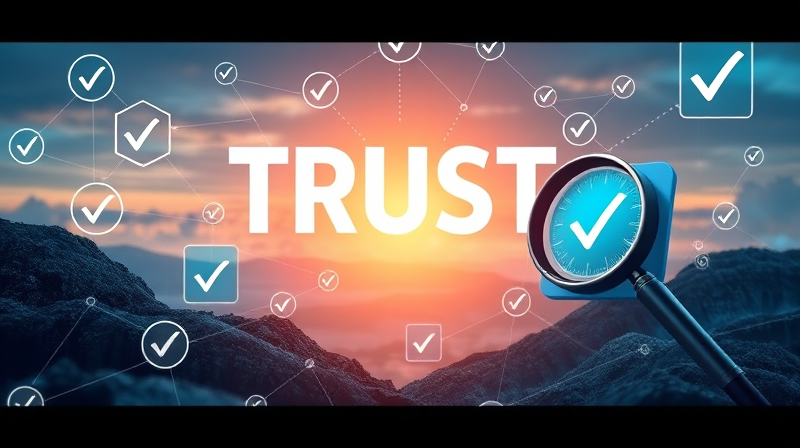In today’s rapidly evolving digital age, the way we consume news has drastically changed, and so have the challenges related to verifying its accuracy. Being well-informed means not only staying updated with the latest events but also ensuring that the information you absorb is reliable and factual. This manual is designed to help you navigate the process of evaluating news sources, cross-checking facts, and cultivating a habit that values truth above all. By adopting these practices, you empower yourself to make decisions based on true and verified data.
Embracing a methodical approach to news consumption may seem laborious at first, but with persistence, it transforms into a natural part of your daily routine. Remember, every time you take a moment to verify news, you are acting as a guardian against the spread of misinformation, strengthening the overall integrity of our public discourse.
An Organized Approach to Fact-Checking
When faced with a piece of news, one of the best initial steps is to consult reputable fact-checking websites. These platforms are specifically designed to investigate claims and provide unbiased assessments. They not only confirm the authenticity of the information but also explain the reasoning behind their conclusions, making it easier for you to understand any nuances involved.
- FactCheck.org: This nonpartisan resource focuses on unbiased evidence, acting as a consumer advocate for informed voters.
- PolitiFact: Specializing in political claims, this platform reviews statements with meticulous detail.
- Snopes: Known as one of the oldest and largest fact-checking sites online, it examines a wide range of topics and claims.
- AP Fact Check: Provided by the Associated Press, this tool offers trusted verification backed by journalistic integrity.
- Reuters Fact Check: This service from Reuters ensures that news is scrutinized with the highest standards of journalistic rigor.
When you use these sites, you are taking a decisive step towards ensuring that your understanding of current affairs is grounded in accuracy and truth. This approach not only serves personal knowledge but also underpins societal trust in media.
However, the verification process should not stop there. Beyond fact-checking sites, it’s important to assess the sources of the news. A keen examination of the publication — its history, mission, and affiliations — can reveal valuable insights about potential biases or limitations in coverage.
Strategies for Evaluating News Sources
When you encounter unfamiliar sources, it is essential to look into the background information available. One effective method is to visit the “About Us” section of the website, where you can often find details about the organization’s mission and editorial policies. This transparency is a good indicator of credibility.
In addition to visit the website, you can delve into the domain registration details using tools like whoxy.com. This step can reveal the origin of the website, and in many cases, hints at the legitimacy of the content.
Searching for the publication or the author on trusted watchdog sites can uncover hidden biases or past controversies. This research not only aids in assessing the reliability of the report but also encourages a more nuanced outlook on the information presented.
Cross-referencing is another indispensable strategy. When you find a story reported on an unfamiliar source, don’t hesitate to look for its presence on well-known journalism websites. Trusted media outlets often cover the same stories, which can help identify inconsistencies or confirm the facts as presented.
For visual content, such as photos and videos, using reverse image search tools can be extremely beneficial. This method reveals the original context of the image and helps detect any manipulations. In an era where deepfakes are becoming more sophisticated, ensuring the authenticity of visual content is crucial.
The Role of Critical Thinking and Continuous Learning
Aside from technical tools and verification websites, your most potent asset is critical thinking. Being skeptical of content that evokes strong emotional reactions and consistently questioning the source of your information will serve you well. Recognize that no single source has a monopoly on truth, and always seek to widen your perspective by consulting multiple viewpoints.
Developing a habit of fact-checking transforms your news consumption into a disciplined practice. Every time you verify a piece of news, you are contributing to the protection of informed public debate. Maintaining this habit is more than a personal benefit; it is a civic duty.
Moreover, applying advanced search techniques can be particularly effective when seeking background information or exploring academic sources. Use search modifiers and explore databases like Google Scholar to unearth comprehensive and detailed analyses that might otherwise be overlooked.
Another invaluable practice is engaging with experts. Whether it’s reaching out to seasoned journalists, scholars, or professionals from relevant fields, their insights can further clarify complex issues and guide you through the nuances of modern misinformation tactics.
Staying Adaptable in a Changing Media Landscape
As technology evolves, so do the tactics used to deceive. It's important to be aware of new misinformation techniques such as out-of-context quotes or sensationalized headlines. Familiarizing yourself with these methods will not only improve your ability to spot falsehoods but also inspire you to share verified and accurate information with others.
Keep yourself updated on the latest fact-checking tools and innovations. In this constantly changing media landscape, being proactive helps you stay one step ahead. Follow reputable news outlets that consistently invest in fact-checking, and be an active participant in educating your peers about the importance of news verification.
In conclusion, the journey towards a more factual and verified news intake is an ongoing process that demands diligence, critical thinking, and an openness to continued learning. By integrating these practices into your daily routine, you not only ensure personal enlightenment but also contribute actively to a more informed society. Every step taken to verify and validate news is a step towards a collective intelligence that values truth and reliability above all else.
Let your commitment to truth serve as an inspiration, and remember that in the fight against misinformation, every informed decision counts. With dedication and persistence, you can navigate the complex world of news and emerge as a confident consumer of reliable, verified information.








